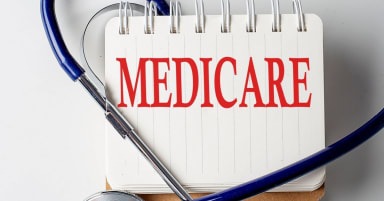If you're turning 65, you've probably got Medicare on your mind. It's federal health insurance that kicks in at 65, though you can get it earlier if you have a disability or kidney failure.
Part A handles hospital stays and nursing home care. Most people don't pay a dime for it since you already paid into Medicare through taxes during your working years. Part B covers doctor visits and preventive services, such as screenings. This one costs $185 a month in 2025, though you'll pay more if you make more money.
Already getting Social Security? You'll get both parts automatically when you turn 65. From there, you can add Part D for prescription coverage. Many people also buy Medigap to help with copays and deductibles. Alternatively, you can bundle everything with a Medicare Advantage plan, which includes dental and vision coverage as well.




